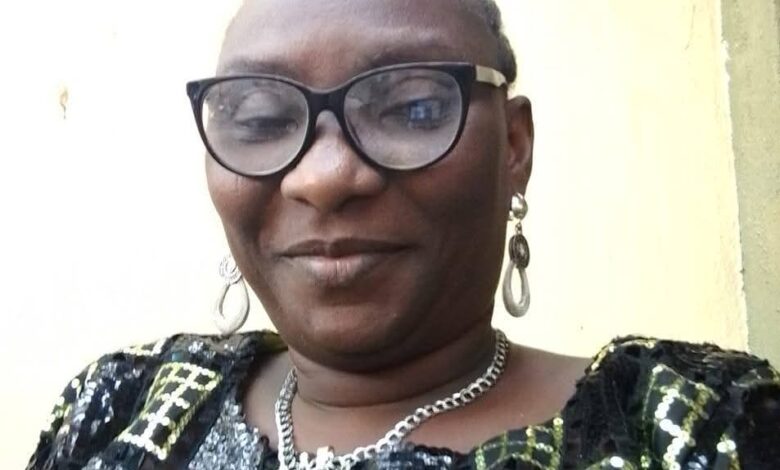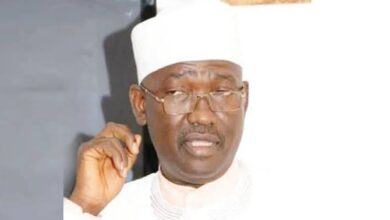Senator Akpoti-Uduaghan’s Allegation: A Cry for Justice, Not a Sign of Weakness

By Christie Doyin
I find it utterly baffling that former Senator Florence Ita-Giwa would suggest that Senator Natasha Akpoti-Uduaghan’s complaint of sexual harassment is a sign of weakness. Her statement has left me deeply unsettled, to say the least.
Since the public rift between Senate President Godswill Akpabio and Senator Akpoti-Uduaghan emerged in the media, I have observed the developments with keen interest, waiting to see how the matter would unfold. It is always intriguing to see how high-profile political conflicts play out, especially when they involve accusations as grave as sexual harassment.

Senator Akpoti-Uduaghan recently alleged during a live television interview that Senate President Godswill Akpabio sexually harassed her. This claim, unsurprisingly, has sparked significant reactions across different quarters. However, what struck me the most was the response from the Deputy Chief Whip of the Senate, Senator Onyekachi Nwebonyi, who came to Akpabio’s defense with an argument that left me thoroughly unimpressed. While I have little regard for political theatrics, I was particularly disturbed by the way some individuals, including Ita-Giwa, have framed this conversation.
What truly compelled me to write this piece, however, was the idea that a woman coming forward with allegations of sexual harassment is somehow a demonstration of weakness. I find this notion not only absurd but also dangerous. It takes immense courage for any woman, regardless of her social status, to step forward and accuse a powerful figure of sexual misconduct.
To label such an act as “weakness” is to undermine the painful experiences of countless victims who have been silenced by shame, fear, or societal pressure. Perhaps I misunderstood Ita-Giwa’s point; maybe she intended to communicate something else. But even if that were the case, the impact of her statement is deeply troubling.
The reality is that it takes extraordinary strength for a woman to speak up about sexual harassment, especially in a patriarchal society where women are often shamed, blamed, or disbelieved.
It is worth noting that this is not the first time that allegations of sexual misconduct have been leveled against Akpabio. There have been previous accusations, some of which have even resulted in confrontations. In fact, I came across a report suggesting that he was once slapped over similar claims. While I cannot independently verify the accuracy of these past allegations, the mere existence of such reports raises serious concerns.
Regardless of whether Senator Akpoti-Uduaghan’s claims are true or false, as Akpabio’s defenders insist, what must not be lost in this conversation is the critical importance of listening to victims of sexual harassment. Dismissing allegations outright or, worse, ridiculing women who come forward only serves to reinforce a culture of silence and impunity.
It is never, under any circumstances, a sign of weakness for a woman to accuse someone of sexual harassment or rape. It is also not a weakness for a man to do the same. Sexual harassment and assault are serious violations that can have lasting emotional, psychological, and professional consequences. The moment we start trivialising such accusations, will embolden perpetrators and discourage victims from speaking out.
One of the most shocking aspects of this saga is the manner in which Senator Akpoti-Uduaghan has been attacked, not just for her allegations but for her personal life. In an attempt to discredit her, a shocking statement was made questioning why Akpabio would “be interested in such a woman, a mother of six children from six different fathers.”
This remark is not only appalling but also deeply misogynistic. It reflects the disturbing tendency in our society to shame women based on their personal choices while completely ignoring the actual issue at hand. What does the number of children a woman has, or the number of men she has had relationships with have to do with whether or not she was sexually harassed?
Such comments are meant to humiliate and discredit women who dare to speak out. They send a clear message: if a woman steps forward with allegations against a powerful man, she will be ridiculed, shamed, and have her character assassinated. This is precisely why so many victims choose to remain silent.
Given the seriousness of the allegations and the offensive comments made against her, I strongly believe that Senator Akpoti-Uduaghan should take legal action. The attempt to tarnish her reputation by dragging her personal life into the matter should not go unchallenged. Perhaps a lawsuit will serve as a lesson to those who believe they can make careless, defamatory statements without consequences.
Nigeria, like many other countries, has long struggled with gender-based violence and systemic misogyny. Women who dare to challenge the status quo are often vilified, silenced, or dismissed as troublemakers. If we are ever to make meaningful progress, we must reject the notion that speaking out against sexual harassment is a sign of weakness. It is, in fact, a sign of immense courage and strength
Christie Doyin writes via cdoyinronk@gmail.com



